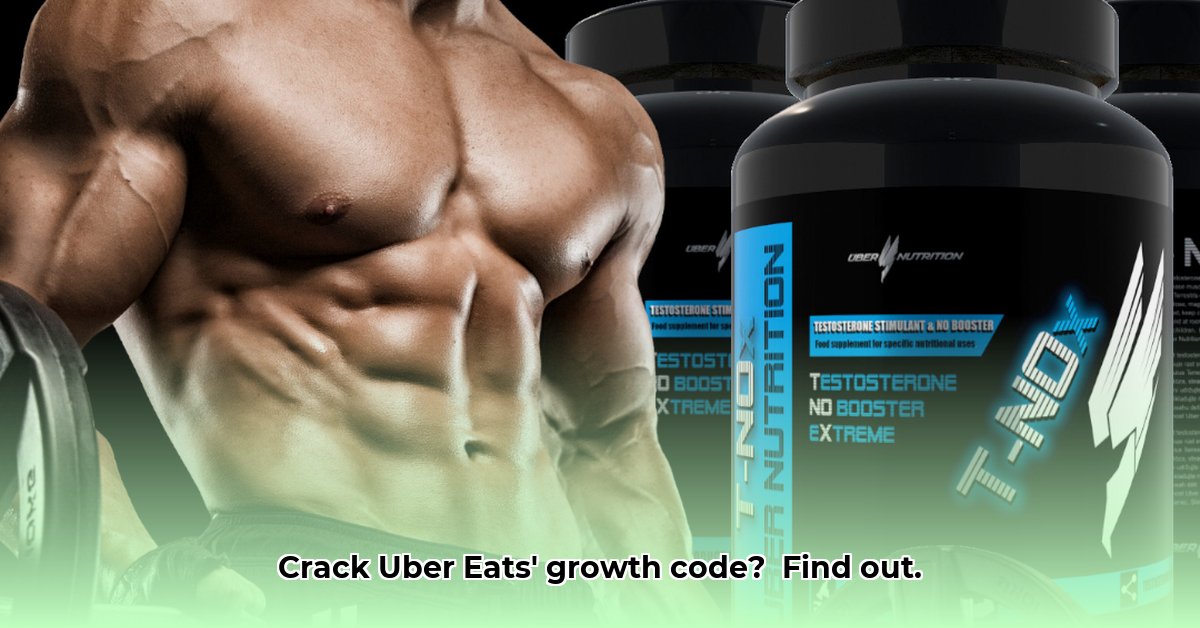
Uber Nutrition: From Testosterone Booster to Market Leader?
Uber Nutrition, established in 2010, has built a strong reputation in the South African health supplement market, primarily through its flagship product, TESTO24 (a testosterone booster). However, continued success requires a strategic shift beyond reliance on a single product. This analysis explores Uber Nutrition's current market position, identifies key strengths and weaknesses, proposes actionable growth strategies, and addresses potential risks to ensure sustainable growth and market leadership.
Market Analysis: Navigating a Competitive Landscape
The South African dietary supplement market is fiercely competitive. While Uber Nutrition enjoys brand recognition within its niche, a reliance on TESTO24 limits long-term potential. Diversification into complementary product lines is crucial to capture a larger market share and address the broader needs of health-conscious consumers. Opportunities exist in expanding into segments such as weight management, women's health supplements, and broader wellness products. A comprehensive market research strategy should reveal underserved needs and pinpoint further opportunities for expansion.
How can Uber Nutrition effectively leverage its existing brand recognition to penetrate these new market segments, while maintaining its reputation for quality?
Uber Nutrition's Strengths and Weaknesses: A SWOT Analysis
A SWOT analysis reveals both opportunities and challenges for Uber Nutrition:
Strengths:
- Strong brand recognition within its target demographic (primarily men interested in fitness and performance enhancement).
- High-quality ingredients and innovative product formulations in TESTO24.
- Loyal customer base built on trust and product efficacy.
Weaknesses:
- Over-reliance on a single product, TESTO24, creating vulnerability to market shifts and competitor actions.
- Limited market reach beyond its established niche.
- Potential lack of brand diversification to appeal to a wider demographic.
Growth Strategies: A Multi-Phased Approach
Uber Nutrition's growth strategy should adopt a phased approach, balancing short-term gains with long-term vision:
Short-Term Goals (0-12 months):
- Product Line Expansion (MVP Approach): Develop and launch a Minimum Viable Product (MVP) in a complementary area, such as a pre-workout supplement or recovery aid, leveraging the existing brand recognition and customer base. This allows for rapid market testing and feedback integration.
- Enhanced Brand Awareness: Implement targeted marketing campaigns on social media and through partnerships with fitness influencers and relevant publications to reach a wider audience and increase brand visibility. Aim for a 20% increase in social media engagement within six months.
- Improved Online Presence: Optimise the website for search engines (SEO) to increase organic traffic and enhance online visibility. The goal is to improve website traffic by 25% within the next year.
Long-Term Goals (3-5 years):
- Diversification into New Product Categories: Expand beyond the current niche by developing product lines targeting weight management, women's health, and overall wellness. This requires thorough market research to identify unmet needs and consumer preferences. The aim is to increase revenue from new product lines by 50% over five years.
- Strategic Partnerships: Collaborate with key retailers (pharmacies, gyms, health food stores) to broaden distribution channels and increase market penetration. Secure at least 5 major retail partnerships within three years.
- Research & Development (R&D) Investment: Invest in R&D to innovate and create unique, high-quality products that maintain a competitive edge in the evolving supplement market. Allocate at least 10% of annual revenue to R&D activities.
Risk Assessment and Mitigation Strategies
Several key risks need addressing:
- Regulatory Non-compliance: Stringent adherence to all South African health supplement regulations is crucial. Proactive legal consultation and robust quality control processes will mitigate this risk.
- Supply Chain Disruptions: Diversifying suppliers and securing long-term contracts with reliable vendors can minimise supply chain vulnerabilities.
- Intense Competition: Maintaining a strong brand identity, continuous product innovation, and effective marketing strategies will position Uber Nutrition for sustained competitiveness.
Regulatory Considerations: Compliance and Proactive Management
Strict compliance with all relevant South African regulatory bodies and health and safety standards is non-negotiable. This includes accurate product labelling, truthful marketing claims, and adherence to Good Manufacturing Practices (GMP). Proactive monitoring of regulatory changes and proactive engagement with relevant authorities will safeguard Uber Nutrition's reputation and minimise legal risks.
Conclusion: Charting a Course for Sustainable Growth
Uber Nutrition possesses a strong foundation, but sustained success hinges on strategic diversification, aggressive marketing, and rigorous risk management. By addressing the challenges outlined and actively pursuing the proposed growth strategies, Uber Nutrition can evolve from a niche player to a market leader in the dynamic South African health supplement landscape. The path is clear; the execution requires commitment, innovation, and a keen understanding of the market’s evolving needs.